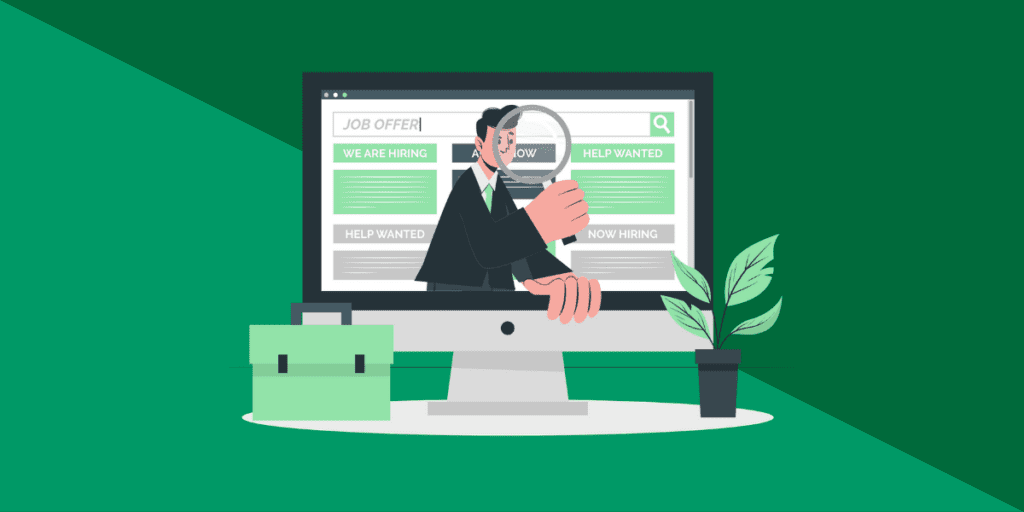Besides studying, career advice and experiences are also a very important part of exam candidates’ lives.
Today, I wanted to share one of the most significant events in my career, and how this changed the entire course of what I ended up doing for a living.
I wanted to convey why I felt that getting laid off – traditionally feared and dreaded by everyone – taught me many things that I would never have experienced otherwise, and made me significantly more successful than if I had stayed at that role.
It’s a long read, ready with your coffee? Let’s dive in!
How it all started

One morning in the spring of 2009, I walked into my local Marks & Spencer and bought a bottle of champagne. I was excited, nervous, and waiting for a very special email to arrive in my work inbox. An email to tell me whether I got to keep my current job, or I had to start looking for another one.
That was the day I was laid off from my job.
OK, before I continue, some background story first: I started my career pretty similarly to the average over-achiever: hungry, desperate to prove my awesomeness, never tiring in the pursuit to show how great I was at my job to my superiors. I was a financial services consultant at a prestigious firm in London, providing strategic analysis and advice to investment banks and wealth managers.
The 2008 crisis hits

2007 and 2008. The financial crisis, as many of you know, hit us in many significant events.
The one that really struck it home for me was the collapse of Lehman Brothers. I lived about 3 minutes away from the Lehman Brothers building in Canary Wharf, so I had front seat tickets to the Lehman Show on the 15th of September 2008.
Watching Lehman bankers solemnly bring their brown boxes out of the Lehman building on Bank Street filled me with a kind of dreadful awe. It’s really happening.
Read the biscuits, not the emails

Meanwhile, our firm wasn’t dead, but it was certainly suffering. Our partners sent numerous emails detailing how awesome our firm was and listing many reasons why the crisis won’t hit us, but the facts were:
- We are a financial services firm,
- Our clients are financial institutions,
- Financial institutions were getting shafted,
- We, by proxy, will eventually get shafted too.
There were other clues as well. Cost cutting measures started appearing around the office. There were many, but one stands out clearly in my mind.
Our firm always had free biscuits, bought in great big cartons from the local Marks & Spencer. The chocolate ones were a particular favourite. One day, they just stopped arriving. All hell broke loose (only in the UK, over biscuits).
We also had other larger cost-cutting measures such as less travel & entertainment budget, longer replacement cycles for our Blackberries (yes, they were popular in early 2000’s) and laptops.
But the biscuits raised the most complaints: consultants were sending angry emails back and forth, arguments in the corridor, people bringing in their own biscuits and handing them out in protest. I remember one colleague exclaiming loudly, “what’s next, they’re going to take away our toilet paper?!”.
Every time one of these random cost-cutting exercises hit us, there was another round of emails from the partners assuring us that the firm has never laid off anyone and never will. Of course, the layoffs happened soon after. If you ever suspect your firm is in trouble, and you want an accurate picture, read the biscuits, not the emails.
“We’re firing a bunch of you, but we’re not sure which ones.”

The cost-cutting measures raised a few eyebrows, but the layoff process that happened next was certainly pretty disastrous from an employee morale point of view.
One morning, everyone in the firm received a very long, complicated email that was clearly written by a lawyer. The content of the email essentially boiled down to these 3 sentences:
“We have to fire some people. We don’t know which people. We’ll let you know, oh, I dunno, about 4 weeks later.”
The UK has certain labour protection laws when a firm needs to let go of a significant bunch of people, which was the reason behind the 4-week delay. We would receive an email at that time, notifying us who got to stay, and who didn’t. No surprise that not much work was done in those 4 weeks…
Getting laid off could potentially be awesome

When the announcement was made, I had barely a couple of years of work experience under my belt. I’d just passed CFA Level 1. Initially, I was pissing myself with panic.
In the ensuing 4 weeks however, I did some careful analysis and inventory of my career. Some points I covered:
- The layoffs got a nice severance package, equivalent to roughly 9 months pay.
- I’d been considering switching industries (i.e. leaving finance) to try out media and advertising, but as a green rookie I hadn’t yet worked up the cojones to leave my well-paying job.
- I’d just come off a crushing 10-week project were we worked about 120-hour weeks on average. I was ready to leave just on the basis of that.
- The layoffs numbers will be highest at the junior levels, and although I worked hard and worked well, I hadn’t really established a really good working relationship with many partners.
I realised that given all my consideration, I was actually leaning towards being laid off. This would mean I got 9 months of corporate sponsorship to try and make it in another industry. An opportunity I would not have in any other circumstance.
The email arrives: beep, you’re fired

The layoff email was scheduled to come on a Sunday.
Let’s all revel in that for a moment: my firm was laying off people en masse, on a Sunday, by email. There’s no easy way to communicate a layoff, but surely there’s better ways.
Was I sure I wanted to get laid off? Of course I wasn’t.
I had little work experience, it was the start of what looked like a monster of a recession, and I had a huge student loan to pay off. My bottle of champagne was a small act of bravado and defiance in the face of the enormity of what I had coming ahead. But there was never a better time to take the risk, and the best time was now.
I wished I forwarded the fateful email I got that Sunday to my personal inbox now. Had I known how much influence this would have on my career, I would have liked to keep an electronic copy of it. Because of course, as you guessed, I was laid off via that fateful email.
The journey was on, and I was nervous, unsure, but very excited. It would all work out great, I just didn’t know it yet.
What happened after the layoff process?
Next, I’ll share my experiences post lay-off, what ‘outplacement’ meant and how I filled the incoming gap in my CV.
It’s not me, it’s you

A colleague once candidly mentioned that the layoff process was like a messy breakup. Truer words had never been spoken.
Even if I did want to try something new and this layoff was excellent timing, it’s still one of the biggest life-altering events to happen to me. The stress levels one gets from getting laid off ranks highly, up with a death in the family, divorce and serious illness.
If you do get laid off, make sure you take your time to heal mentally. It’s like handling a CFA failure – give yourself some time to mope, then recover. Don’t sink into a vicious cycle of depression, but don’t put on a phony bravado act either. Be honest, enjoy some time off, then plan your next move.
Severance + bonus + tax benefits = windfall

My severance package was fairly good for someone of my experience level at the time. The reason for this was simple – the crisis hadn’t properly sunk its teeth into the economy yet, and companies had yet to tighten the purse strings, even with cast-offs like us.
I had, if I remember correctly, 3-4 months pay, plus my bonus payout. And because it was paid in lieu of notice, there were also massive tax benefits to this.
Comparing this payout to my usual net monthly pay, I had more than 6 months of fully-paid time to sort out another job. I had been prudent with my savings, and if you added them to the mix, that would last me 4 years.
Financially, I wasn’t in a hurry, which was a good starting position to be in.
“Outplacement”
When you’re laid off, sometimes your company gives you what is mystically called an ‘outplacement package’. This basically means they paid a bunch of money to a HR firm who offers a program to ‘get you back on your feet’ and ‘move on’.
They should have just added the money they paid to them to my severance package instead. If you do get one, I strongly suggest you don’t bother with it.
I tried to like this program, telling myself that if an entire company was formed around the basis of ‘outplacement’, surely there was some help to be found here. I was wrong. There are several reasons to stay the hell away from this place:
- It’s depressing as hell. Everyone there has been recently laid-off. Or even more depressingly, laid-off for quite a while now. They’re lovely people, but surrounding yourselves with more people in the same situation every day, in this case, was highly negative for me.
- It makes you all broody. Going there seemed to fixate my mind on my layoff rather than looking forward to getting a new role. Which is ironic considering what the company was there for.
- The coaching was pretty rubbish. Maybe it was the specific firm that I got for my outplacement, but the coaches weren’t very good. None of them worked in any industry similar to mine, and they weren’t even specialized in job-hunting of any sort. I had the feeling they were doing this simply because there wasn’t much else they could be doing. The courses, as a result, weren’t that useful as they were saying very generic things like ‘update your CV‘ and ‘milk your network‘.
My push to find a job unlike the previous one

You have to work hard to find a job after being laid off. However, you have to work twice as hard if you want to find a job that’s not like your old job.
Recruitment agents are incentivized to get you a new job. Any job. The most likely job you’re likely to get is one which your education and experience suits best. This was not the kind of job I was looking for. I wanted to take advantage of this break in my career to try out advertising. Yes, advertising.
This decision was not made on a whim. I had maintained a keen interest in advertising creative since I was a child, and I had some talent in creating advert concepts, visuals and copy.
The recruitment agents were having none of it, though. In the recession, business was going through the roof, and they didn’t really have a lot of time to entertain a fresh-faced hopeful that wanted to try advertising, of all things.
I was driven and organized in contacting recruitment agents. But after speaking to over 30 different agencies, I didn’t even get one to put one in front of me. In this business of convincing recruitment agents, enthusiasm counts for nothing, apparently.
Hedging my bets with CFA Level 2

I signed up for CFA Level 2 at about the same time I started my job search.
I decided to continue down the CFA path the way a (bad) poker player bets more and more into the game in hopes to win all his money (or in my case, the effort I put into Level 1) back.
Also, I needed something in case the advertising thing didn’t work out.
Freelancing

Throughout my job search, I also did free lance finance consulting, 3 days a week. This I got from a recommendation made by a partner in my old firm (again, the importance of your network!). There were 3 main reasons for this:
- It was a good CV-filler, so that I would have something to put in the eventual time-gap.
- Keeps me sharp and my skills up to date. It’s amazing how quickly you drop out of sync after a few weeks – this keeps you in check.
- It’s good money. In a consulting firm, the firm keeps all the fees it charges and pays you a salary. As a freelancer, I got to charge my own fees, and it turned out to be pretty good for 3 days a week!
How does the story end?
I was in a good place at this point.
I was studying for the CFA Level 2, I had a freelance consulting project, and I was pushing on with my job search. I wasn’t having much luck trying to convince recruiters to recommend me to advertising agencies, but my big break wasn’t to hit me for another two months or so.
And in a most unexpected way.
Weirding out my recruiters

Switching jobs within finance is hard enough.
But here I was, trying to break in to advertising, coming from a finance background. And judging by the looks I was getting from recruiters, this is like Michael Jordan trying to play baseball after quitting the NBA, except weirder.
It was a massive mission trying to get recruiters to work with you on this. Recruiters are compensated when you accept a job offer, so it’s in their interest to sell you a job that you’re most likely to get, rather than a job that you’d like to get.
This is important to bear in mind whenever you’re dealing with recruiters. So instead of getting assistance from them on pursuing my dream job (oh sweet naive me), I was bombarded long and hard on why I should continue my finance career.
A tempting finance job offer

Recruiters’ persistence and risk-hedging led me to continue to apply for finance roles. This was actually an excellent decision, not because I eventually ended up back in finance, but because in any job-hunting situation, you’ll need a lot of interviewing experience.
I was still networking my ass off and trying to get hooked up in advertising, but at that young stage of my career I wasn’t great at networking and also didn’t have many contacts. LinkedIn was also less established then.
On the other hand, because of my experience in finance and my recruiters’ enthusiasm, the finance interviews were coming in hard and fast. And soon, a job offer landed on my lap – Barclays Wealth Management.
Dear Lord. Do I accept and curve back, or do I persist with my pipe dream?
As my Barclays offer came in, I was invited to interview at one of the largest advertising firms in the world. The role was incredibly suited to my skills – they needed a financially and analytically grounded analyst for brand valuation projects and ventures. In other words, in a world of creatives-types, they needed a numbers man to assist them, and I fit the bill perfectly.
“Hi, I’m supposed to start tomorrow at your firm… except I’m not.”

While I was going through the rounds of interviews for my advertising role, I still had to deal with the offer from Barclays:
- If I reject them, I may fail the advertising interviews and end up with nothing.
- If I accept, I may have a hedged role, but what do I do if I got the advertising offer as well?
I’m not terribly proud of this, but I made the only logical choice that I could think of that put me at the least risk. I accepted the Barclays offer, and decided that if I got the advertising role and decided to accept it, I would awkwardly explain it to Barclays.
And…I ended up getting the advertising role. 2 days before I was supposed to start at Barclays.
The call explaining to my recruiter and Barclays, on the day before I was supposed to start, that I WASN’T going to start, was one of the most memorable conversations of my life.
What I have learnt from this layoff experience

That was many years ago.
After my role in brand valuation, I was offered (and accepted) a strategic role in one of the most influential technological companies in the world. I’ve founded 2 startups of my own, and my career has been as interesting as any person could hope for, and awesomely rewarding.
All because of my layoff all those years ago.
So what have I gained or learnt from this whole experience? Here are some of them:
- I finished what I started: the CFA exams, even as my career veered further away from finance.
- Job hunting skills: I learnt important lessons about job applications, networking and interviewing that will continue to benefit me for the rest of my life.
- Gained immunity from job insecurity: getting laid-off makes it a lot easier to be less worried about it. You accept it: careers are fleeting. You’ll survive, and it could even turn out better.
- A self-epiphany that I have an analytical mind, but I was ill-suited to the detail-oriented nature of professional finance. Freakonomics-style reasoning and analysis was more my bag.
- Instead of trying to adjust my nature to suit my job, I discovered that you could adjust the world to suit you. No matter what you’d like to try doing for a living, there is always a niche that fits you.
Looking back, there is absolutely no doubt that being laid-off was one of the best things to happen to my career.
It was my own little Fight Club journey, except way more profound than anything a movie could instil in you. It was an incredible opportunity that I was lucky enough to be given, to work towards self-realisation and carve my own little career path.
This story doesn’t necessarily tell you what to do with your own career, but I hope this story can bring some food for thought into your own career decisions. Feel free to pop any question you have in the comments below!
Meanwhile, here are some related articles that may be of interest:

I needed to see this. I would love to pivot my career to interior design/decoration from supply chain management. I have a natural talent and interest in it but no formal education or work experience. I have done projects in my home and my parents home with a small portfolio to show my work.
That’s lovely to hear Lex! The low risk way is to keep on doing working on interior design projects whilst keeping your ‘main job’ until it develops into an opportunity where you can swap careers.
Thanks for this. At 54 years old, I’m facing my first termination. I have kids and a huge mortgage, so I’ve been trying to learn about the experience from others.
I’m trying to find that “this will end up better” attitude.
Still have a ways to go.
Hang in there. First termination can be hard but try not to take it personally. With your vast experience in your sector, we hope finding a new role, the right role for you would open up new opportunities for you and your family. Keep us posted on your journey!